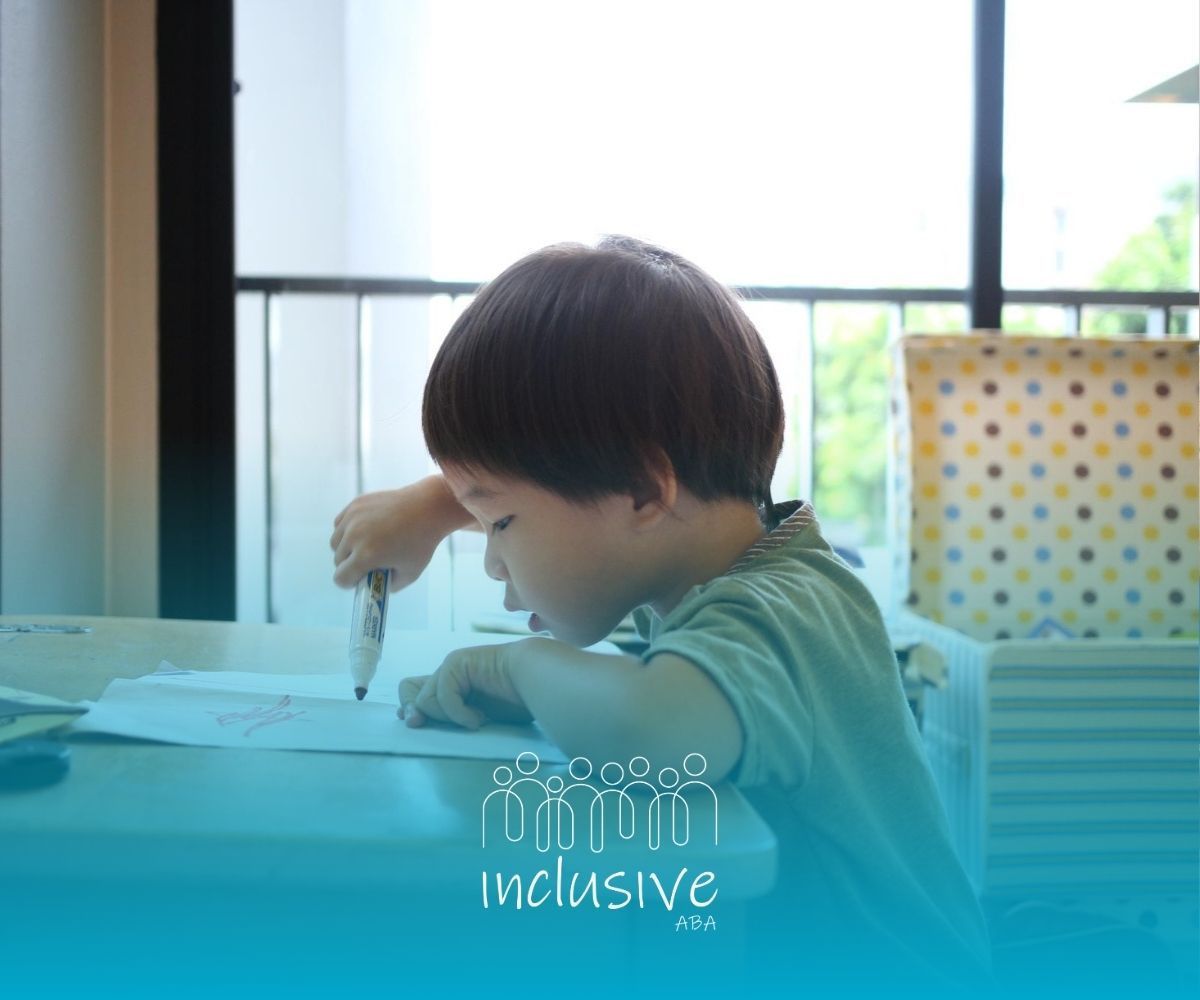Unlocking Potential: ABA Therapist Training Insights for Families
Qualifications of an ABA Therapist
Understanding the qualifications required for an ABA therapist is crucial for families seeking effective therapy for their loved ones. This section delves into the licensing requirements and certification levels necessary for behavior analysts.
Licensing Requirements for Behavior Analysts
Since 2009, the applied behavior analysis profession in the United States has become increasingly regulated. Many states have passed legislation to license or otherwise regulate behavior analysts. This regulation ensures that professionals meet specific standards of education and experience, providing families with confidence in the quality of care.
State licensing departments establish
behavior analyst licensing requirements on a state-by-state basis, with no national licensing scheme for the profession. Boards made up of experienced professionals from the field are responsible for determining qualifications for licensure. In nearly every state, a master's degree is the standard minimum qualification to become a licensed behavior analyst, with some states requiring a
BCBA® certification closely following the BACB Model Act.
| State | Licensure Requirement | Year Enacted | Licensure Board |
|---|---|---|---|
| California | BCBA® Certification | 2011 | California Board of Behavioral Sciences |
| New York | Master's Degree + BCBA® | 2014 | New York State Education Department |
| Texas | BCBA® Certification | 2017 |
Certification Levels in ABA Therapy
Certification in ABA therapy is tiered, allowing professionals to advance their qualifications and expertise. The Behavior Analyst Certification Board (BACB) offers several levels of certification:
- Registered Behavior Technician (RBT®): This entry-level certification requires a high school diploma, completion of a 40-hour training program, and passing the RBT® exam. RBTs work under the supervision of a BCBA® or BCaBA®.
- Board Certified Assistant Behavior Analyst (BCaBA®): This certification requires a bachelor's degree, completion of approved coursework, supervised fieldwork, and passing the BCaBA® exam. BCaBAs work under the supervision of a BCBA®.
- Board Certified Behavior Analyst (BCBA®): This certification requires a master's degree, completion of approved coursework, supervised fieldwork, and passing the BCBA® exam. BCBAs can work independently and supervise RBTs and BCaBAs.
- Board Certified Behavior Analyst-Doctoral (BCBA-D®): This advanced certification is for individuals who have earned a doctoral degree and have met additional requirements. BCBA-Ds have the same responsibilities as BCBAs but are recognized for their advanced training and expertise.
| Certification Level | Education Requirement | Supervision Requirement | Exam Requirement |
|---|---|---|---|
| RBT® | High School Diploma | 40-hour training | RBT® Exam |
| BCaBA® | Bachelor's Degree | Supervised fieldwork | BCaBA® Exam |
| BCBA® | Master's Degree | Supervised fieldwork | BCBA® Exam |
| BCBA-D® | Doctoral Degree | Additional requirements | BCBA® Exam |
For more information on certification levels, visit our page on ABA therapist certification.
Understanding the qualifications and certifications of ABA therapists helps families make informed decisions when seeking therapy for their loved ones. For more insights on the skills and experience required, visit our page on ABA therapist qualifications.
Becoming an ABA Therapist
Training Path for ABA Therapists
The journey to becoming an ABA therapist involves a structured training path that includes academic coursework, supervised fieldwork, and certification. The process varies depending on the individual's starting point and educational background.
- Bachelor's Degree: The first step is obtaining a Bachelor's degree in a related field such as psychology, education, or social work. This foundational education provides the necessary background knowledge for further studies in Applied Behavior Analysis (ABA).
- Master's Degree: After completing a Bachelor's degree, aspiring ABA therapists typically pursue a Master's degree in ABA, psychology, or special education with an ABA concentration. Programs like the one at the University of North Carolina at Charlotte offer a comprehensive curriculum that includes 33 hours of coursework over two years.
- Fieldwork: Concurrent with or following the Master's program, candidates must complete supervised fieldwork. This hands-on experience is crucial for developing practical skills and applying theoretical knowledge in real-world settings. The fieldwork requirements vary but generally include a set number of hours under the supervision of a Board Certified Behavior Analyst (BCBA).
- Certification: The final step is obtaining certification from the Behavior Analyst Certification Board (BACB). The BCBA certification requires passing a comprehensive exam that tests the candidate's knowledge and skills in ABA therapy.
Duration of Training for Different Starting Points
The duration of training to become an ABA therapist can vary significantly based on the individual's starting point and prior education.
| Starting Point | Duration | Description |
|---|---|---|
| Bachelor's Degree | 7-8 years | Includes obtaining a Bachelor's degree, a Master's degree, and completing fieldwork. |
| Master's in Psychology | 2 years | Requires completing necessary coursework and fieldwork for BCBA certification. |
| Bachelor's in Education | 4 years | Involves pursuing a Master's in special education with an ABA concentration and completing fieldwork. |
| Graduate Certificate Program | 18 months | For individuals with a Master's degree, involves completing coursework and supervised fieldwork concurrently. |
For example, Emily, who had a Bachelor's degree in education, pursued a Master's in special education with an ABA concentration. She completed 33 hours of coursework over two years and fieldwork while working in a school, taking a total of four years to prepare for the BCBA exam.
On the other hand, Martin, who held a Master's in psychology, enrolled in a graduate certificate program and completed the coursework and supervised fieldwork concurrently, achieving the BCBA credential within eighteen months.
The demand for ABA therapists has significantly increased, with job postings requiring BCBA certification rising from 789 in 2010 to 65,366 in 2023. This growth highlights the importance of ABA therapy and the need for qualified professionals in the field.
Role of ABA Therapists
ABA (Applied Behavior Analysis) therapists play a crucial role in helping children with autism develop essential skills and behaviors. Their training equips them with a variety of skills and emphasizes the importance of family involvement in the therapeutic process.
Skills Developed in ABA Therapy
ABA therapists are trained to help children improve various functional skills, including social skills, communication, daily living, play skills, and self-regulation. These skills are essential for children to handle social interactions more effectively, control their emotional responses, communicate their wants and needs, and develop positive behaviors.
Key skills developed in ABA therapy include:
- Social Skills: Teaching children how to interact appropriately with peers and adults.
- Communication: Enhancing verbal and non-verbal communication abilities.
- Daily Living Skills: Helping children perform everyday tasks independently.
- Play Skills: Encouraging appropriate play and interaction with toys and peers.
- Self-Regulation: Assisting children in managing their emotions and behaviors.
ABA therapists use various techniques such as task analysis, chaining, and prompting to teach these skills. Task analysis involves breaking down complex activities into small steps and teaching each step until the child can complete the task independently. Chaining is used to teach the steps in a task analysis, with the goal of the child completing the entire chain independently. Prompts are used to guide the child through new skills, with the aim of gradually fading these prompts as the child gains independence.
Importance of Family Involvement
Family involvement is a critical component of ABA therapy. Parents, family members, and caregivers are encouraged to participate in the therapeutic process to ensure that new skills and behaviors carry over to home and other environments.
Benefits of family involvement include:
- Consistency: Reinforcing the skills and behaviors learned in therapy at home.
- Support: Providing emotional and practical support to the child.
- Empowerment: Teaching family members basic ABA principles and strategies to help them support the child's development.
ABA therapists often work closely with families to provide training and guidance on how to implement ABA techniques at home. This collaborative approach ensures that the child receives consistent support across different settings, leading to more effective and lasting outcomes.
Techniques Used in ABA Therapy
Applied Behavior Analysis (ABA) therapy employs various techniques to help individuals with autism develop essential skills. Two fundamental techniques used by ABA therapists are Task Analysis and Chaining and Prompting Methods.
Task Analysis in ABA Therapy
Task Analysis is a technique where complex activities are broken down into smaller, manageable steps. This method allows ABA therapists to teach each step individually until the child can complete the entire task independently. Positive reinforcement is used to increase the likelihood of the child using these new skills in the future.
For example, if the goal is to teach a child how to brush their teeth, the task analysis might look like this:
- Pick up the toothbrush.
- Apply toothpaste to the toothbrush.
- Turn on the water.
- Wet the toothbrush.
- Brush the top teeth.
- Brush the bottom teeth.
- Rinse the mouth.
- Rinse the toothbrush.
Each step is taught individually, and the child receives positive reinforcement for completing each step correctly. This method ensures that the child learns the entire process in a structured and supportive manner.
Chaining and Prompting Methods
Chaining is a method used in ABA therapy to teach children the steps in a task analysis. The goal is to teach the child to complete the entire chain of steps as independently as possible. There are two main types of chaining:
- Forward Chaining: The child learns the first step in the sequence first. Once the first step is mastered, the therapist teaches the next step, and so on, until the entire task is learned.
- Backward Chaining: The child learns the last step in the sequence first. Once the last step is mastered, the therapist teaches the second-to-last step, and so on, moving backward through the sequence.
Prompting is another essential technique used in ABA therapy. ABA therapists use different types of prompts to help teach children new skills. The goal is to gradually fade these prompts as the child moves towards independence in performing the skills. Types of prompts include:
- Physical Prompts: Hand-over-hand assistance to guide the child through the task.
- Verbal Prompts: Providing verbal instructions or cues.
- Visual Prompts: Using pictures or visual aids to guide the child.
- Gestural Prompts: Using gestures to indicate the desired action.
By using these techniques, ABA therapists can effectively teach children with autism a wide range of skills, from daily living activities to social interactions.
These techniques are integral to the training of ABA therapists, ensuring they are well-equipped to support the development of children with autism.
Career Paths in ABA Therapy
ABA therapy offers diverse career paths for those interested in making a difference in the lives of individuals with autism and other developmental disorders. This section explores the various specializations within ABA therapy and the opportunities beyond traditional therapy roles.
Specializations in ABA Therapy
ABA therapists can specialize in various fields, each offering unique opportunities to apply their skills and knowledge.
Organizational Behavior Management (OBM)
ABA therapists in the field of Organizational Behavior Management (OBM) focus on improving individual or group performance within organizational settings like corporate offices, manufacturing plants, and service-oriented businesses. The goal is to achieve performance improvement and organizational change for a more efficient workplace.
Traumatic Brain Injury (TBI)
ABA therapists working with individuals with Traumatic Brain Injuries use ABA strategies to make a difference in recovery by addressing social skills, emotional control, stress, anxiety, visual memory deficits, verbal memory deficits, and more.
Special Education
ABA therapists specializing in Special Education use ABA therapies to improve learning, social skills, and behaviors for children with developmental or cognitive issues. They effectively manage behaviors, design instruction, and administer educational assessments for students receiving special education services.
Opportunities Beyond Traditional Therapy Roles
ABA therapists are not limited to traditional therapy roles. There are numerous opportunities to apply their expertise in various fields.
Human Resources and Business Management
Graduates of master’s degree programs in applied behavior analysis can pursue careers in human resources and business management as HR specialists, management consultants, or recruiters. These professionals are equipped with the skills and techniques necessary to effectively motivate employees, assess behavior, and design strategic interventions, contributing to the success of organizations.
FBI Behavioral Analysis Unit (BAU)
The FBI’s Behavioral Analysis Unit (BAU) employs agents experienced in behavior analysis to track and analyze the behavior of serial killers and white-collar criminals. These agents collaborate with forensic psychologists, psychiatrists, and academic experts to solve cases by providing a clinical perspective, emphasizing the importance of attention to detail and experience with behavior analysis.
Salary and Growth in ABA Therapy
Average Salaries in ABA Therapy
The salary of an ABA therapist can vary widely based on factors such as location, level of education, and years of experience. On average, ABA therapists earn competitive salaries compared to other therapy professions.
| Position | Average Annual Salary |
|---|---|
| Entry-Level ABA Therapist | $40,000 - $50,000 |
| Board Certified Behavior Analyst (BCBA) | $60,000 - $80,000 |
| Senior BCBA | $80,000 - $100,000 |
Salaries can also differ based on the industry and setting in which the therapist works. For instance, those working in private practice or specialized clinics may earn higher salaries compared to those in educational settings.
Projected Growth in the Field
The demand for ABA therapists has seen a significant rise over the past decade. According to ABAMastersPrograms.org, the number of posted jobs requiring a BCBA certification increased from 789 in 2010 to 65,366 in 2023. This surge is attributed to more states covering ABA therapy under insurance, the professionalization of ABA therapists, and the recognition of behavior therapy's impact in various settings.
The U.S. Bureau of Labor Statistics (BLS) projects that employment of substance abuse, behavioral disorder, and mental health counselors will grow 19% from 2023 to 2033, which is much faster than the average for all other occupations. This growth is indicative of the increasing need for qualified ABA therapists to support individuals with autism and other behavioral disorders.
For those considering a career in ABA therapy, the field offers promising opportunities for growth and advancement. Specializations within ABA therapy, such as working with specific age groups or focusing on particular behavioral issues, can further enhance career prospects.
By understanding the salary expectations and projected growth in the field, families can make informed decisions when seeking the best ABA therapist for their needs.
Conclusion
Understanding the qualifications, training, and techniques used in ABA therapy empowers families to make informed decisions when seeking support for their loved ones. Whether you’re looking for a skilled ABA therapist or considering a career in the field, knowing the certification levels and essential skills is key to ensuring quality care.
At Inclusive ABA, our highly trained therapists are dedicated to helping individuals reach their full potential. Contact us today to learn more about our ABA therapy services and how we can support your family!
Sources:
- https://www.bacb.com/u-s-licensure-of-behavior-analysts/
- https://abamastersprograms.org/how-long-does-it-take-to-become-an-aba-therapist/
- https://www.bacb.com/rbt/
- https://online.uc.edu/blog/how-to-become-a-board-certified-behavior-analyst-bcba/
- http://www.steadystridesaba.com/
- https://asdnetwork.unl.edu/virtual-strategies/chaining/













